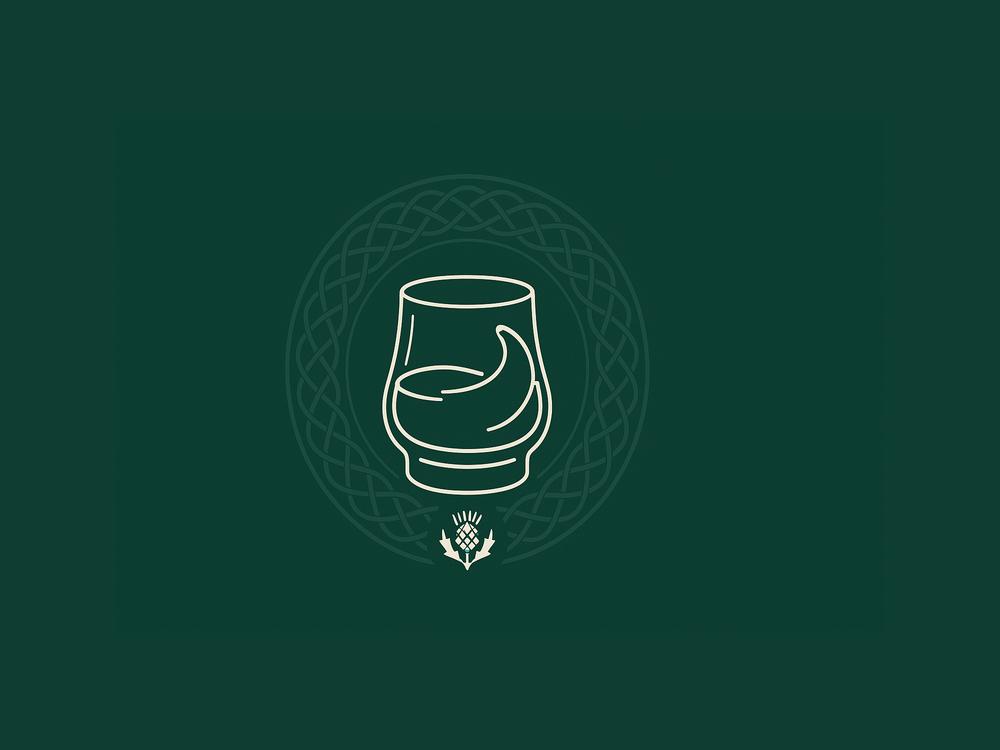Slàinte Mhath - Pronunciation, Definition & Meaning
Published November 19, 2025
Contents

The Scottish Gaelic language (Gàidhlig) is one of the Celtic languages. Today it’s used mainly in the Hebrides, parts of the Highlands, and pockets of Glasgow. It’s closely related to Irish (Gaeilge) and Manx (Gaelg). Along with English and Scots, Gaelic is one of the official languages of Scotland. Spend any time around Scotch whisky and you’ll hear the toast Slàinte mhath sooner or later.
In everyday British life, the old Gaelic term was largely replaced by a cheerful cheers. However, the traditional Scottish cheers continues to enjoy great popularity at Burns Nights, tastings, distillery tours and other whisky events - and reliably ensures twisted tongues.
What does Slàinte Mhath mean?
Short answer: Slàinte mhath literally means good health. It’s the traditional Gaelic way to say “cheers.”
The term Slàinte Mhath comes from the Gaelic and translates as good health. It is the traditional Scottish and Irish toast. The root word slán is related to the Latin ‘salus’ for health, today people in France toast with ‘santé’ and in Italy with ‘salute’, In Scots Gaelic Slàinte just means “health”. Mhath being the lenited form of math means “good”
Together they form the traditional Gaelic toast used when raising a glass in Scotland.
Slàinte mhath is the Scottish spelling, Slàinte mhaith is the Irish, in both languages, the mhath or mhaith can also be omitted, shortening the toast to Slàinte (health).
How do you respond to Slàinte Mhath?
You have a number of choices including:
- Slàinte
- Health
- Slàinte mhath
- Good Health
- Slàinte Mhòr
- Great Health
- Do dheagh shlàinte
- To your very good health
Mòr is the Scottish Gaelic word meaning “big” or “great.” In Gaelic grammar, adjectives following certain nouns undergo a softening of the initial consonant known as lenition. Because of this rule, when mòr follows slàinte, it becomes the lenited form mhòr. Thus, Slàinte Mhòr literally conveys the sense of “great health.”
As a fun bit of trivia the toast Slàinte Mhòr was historically also a secret Jacobite meaning: “health to Marion,” with “Marion” being a code for Bonnie Prince Charlie.
How do you pronounce Slàinte Mhath?
Slàinte Mhath is pronounced as either slanschewaa or slansche ‘va. Phonetically it is written as slɑːndʒə ˈva. To understand this, here are a few of the Scottish Gaelic pronunciation rules that apply to this toast: Accented vowels are drawn out. The I in “AI” is mute here. ‘Mh’ in mhath becomes ‘w’ and ‘th’ is pronounced as a mute h.
Is Slàinte Mhath pronunciation the same everywhere?
No there are regional differences
- Scottish Gaelic: roughly slan-cha vah
- IPA (approx.): /ˈsl̪ˠaːɲtʃə va/
- Tips: accented vowels are lengthened; mh sounds like v before a; th is silent.
- Irish: commonly slawn-cha wah (you’ll also hear …vah in some dialects).
Don’t try to read it “as English”; Gaelic spelling follows its own rules, and regional dialects create small pronunciation differences.
Do you also say Slàinte Mhath in Irish?
Yes. Sláinte Mhaith is oft pronounced as slonsche vay in Ireland but a number of variations exist. Dialects of Irish are the language itself as there is no real standardized Irish. A distinction is made mainly between the main dialects of Munster, Connacht and Ulster, which in turn are divided into geographically separated sub-dialects. As already mentioned, Scottish Gaelic is closely related to Irish, though the Irish write it Sláinte Mhaith.
In Irish, a friendly response is Sláinte agatsa! (“health to you as well”).
How is Slàinte mhath correctly spelled?
The correct spelling is Slainte Mhath in Scotland with the accent over the ‘a’ in Slàinte. In Ireland however, Sláinte is written with an accent aigu. In addition, the mhath is spelled differently: “mhaith”.
The Origins of the Toasting Tradition
The tradition of raising a glass and toasting to good health has deep historical roots, potentially tracing back to Roman times. During ceremonies or rituals, it was customary to honor the gods by raising a glass filled with a sacred liquid, such as blood or wine, symbolizing an offering or a prayer for good health. This practice has endured through centuries, evolving into the modern tradition of toasting to good health with a cheerful “Slàinte Mhath” during gatherings and celebrations.
The Revival of the Gaelic Language
The Gaelic language, from which the phrase “Slàinte Mhath” originates, is currently experiencing a revival across Scotland. While it remains predominantly spoken in the west coast and some parts of the Highlands, efforts are being made to reintroduce the language to both old and new speakers across the country. This revival not only preserves a rich part of Scotland’s heritage but also serves as a tool to educate visitors about Scotland’s native language through the popular toast.
Scottish Distillery Names and Gaelic
Beyond the traditional toast Gaelic has left another important impact on Scotch whisky, many Scottish distillery names often bear a rich Gaelic heritage, a testament to the deep-rooted history of whisky production in the region. Many of these names are derived from Gaelic words that describe the natural surroundings where the distilleries are located, painting a vivid picture of Scotland’s picturesque landscapes. For instance, names might reference geographical features, water sources, or other natural elements, offering a glimpse into the pristine environments where the famed Scotch whiskies are crafted. This Gaelic influence not only preserves the linguistic heritage of Scotland but also adds a layer of depth and tradition to the whisky industry, allowing each bottle to tell a story rooted in the ancient Gaelic language and the rich Scottish lands from which it hails.
Common pitfalls (quick guide)
- Saying the written th: it’s silent here.
- Using w for mh in Scottish Gaelic: aim for v (Irish often sounds closer to w).
- Capitalization: lowercase mhath is standard in running text-Slàinte mhath.
Previous

